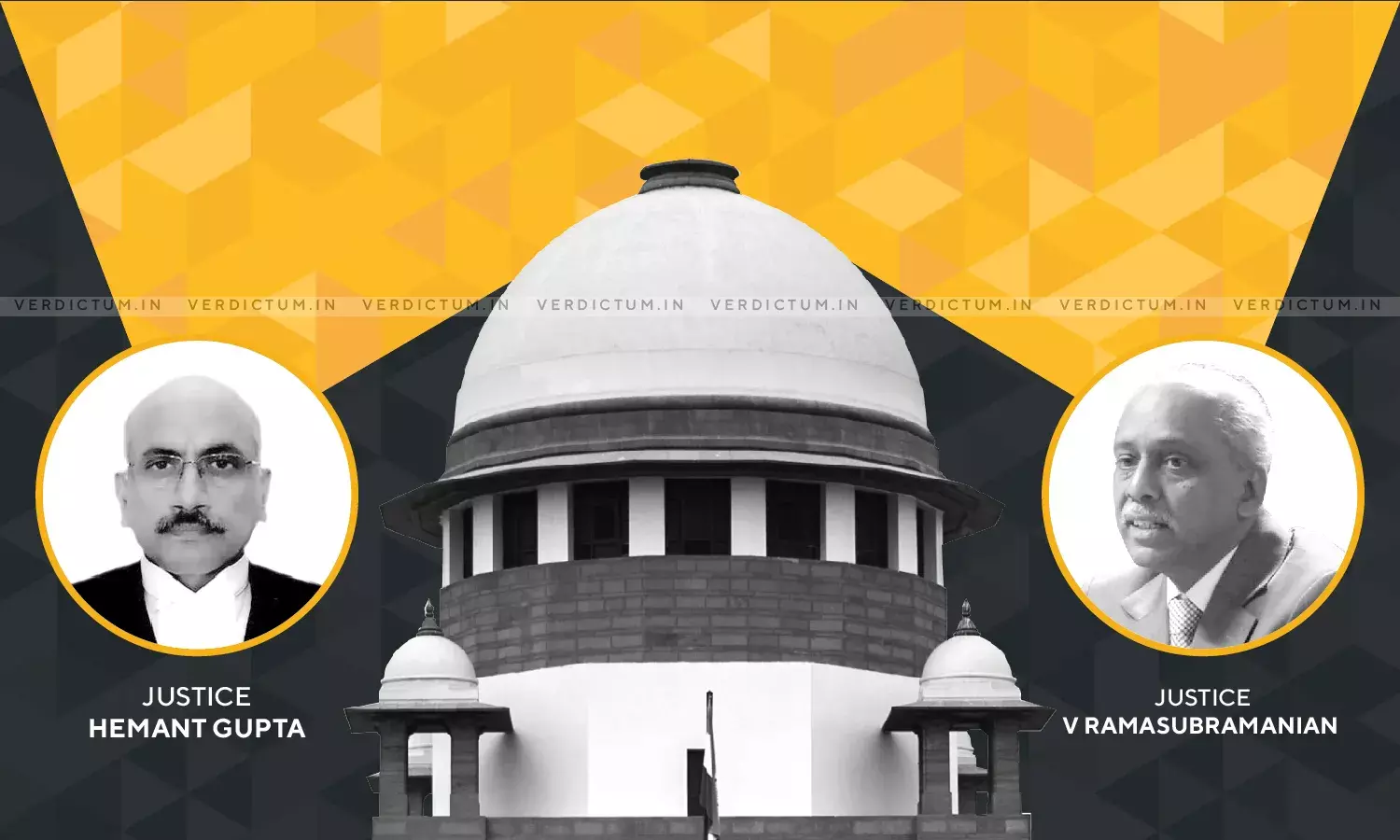Dying In Harness - Amended Rule For Compassionate Appointment To Be Applied Based On Date Of Death And Not Date Of Consideration Of Claim: Supreme Court
A two-judge Bench of Justice Hemant Gupta and Justice V. Ramasubramanian has held that the applicability of a modified scheme for compassionate appointment would depend only upon determinate and fixed criteria such as the date of death and not an indeterminate and variable factor such as the date of consideration of claim.
An appeal was preferred before the Supreme Court assailing the judgment of the Karnataka High Court which had confirmed the order of the Karnataka State Administrative Tribunal directing the Appellants to consider the case of the Respondent for appointment on compassionate grounds.
In this case, the Respondent's sister who was employed as an Assistant Teacher in a Government school died in harness leaving behind her surviving mother, two brothers, and two sisters who were dependent on the income of the deceased. The Respondent had sought an appointment on compassionate grounds.
However, Respondent's claim was rejected by the competent authority on the ground that hat the amendment made to the Karnataka Civil Services (Appointment on Compassionate Grounds) (7th amendment) Rules, 2012 on 20.06.2012, extending the benefit of compassionate appointment to the unmarried dependent brother of an unmarried female employee, will not be applicable to the case of the respondent.
Aggrieved, the Respondent moved the Karnataka State Administrative Tribunal. The Tribunal allowed the application of the Respondent on the ground that the amended rules had a retrospective effect covering the case of the Respondent. This was further confirmed by the High Court.
The High Court had dismissed the appeal of the State while placing reliance on the case State of Karnataka vs. Akkamahadevamma and other, in which the Division Bench of the High Court had given Karnataka Civil Services (General Recruitment) (57th Amendment) Rules, 2000 a retrospective effect.
It was contended by the Respondent before the Supreme Court that there are two lines of judgments of the SC, one taking the view that the Rules/Scheme in force on the date of death of the Government servant would govern the field and the other holding that the Rules/Scheme in force on the date of consideration of claim would govern the field.
It was further argued that the matter had already been referred to a larger bench in State Bank of India v. Sheo Shankar Tewari by the Division Bench for consideration.
The Apex Court after referring to various precedents noted that the conflict between the decisions was on account of the difference between an amendment by which an existing benefit was withdrawn or diluted and an amendment by which the existing benefit was enhanced. The interpretation adopted by this Court varied depending upon the nature of the amendment.
In this context, the Court further observed –
"In cases where the benefit under the existing Scheme was taken away or substituted with a lesser benefit, this Court directed the application of the new Scheme. But in cases where the benefits under an existing Scheme were enlarged by a modified Scheme after the death of the employee, this Court applied only the Scheme that was in force on the date of death of the employee. This is fundamentally due to the fact that compassionate appointment was always considered to be an exception to the normal method of recruitment and perhaps looked down upon with lesser compassion for the individual and greater concern for the rule of law."
The Court considered the two aspects of conflict – i) date of death of employee, and ii) date of consideration of application of dependent. The Bench in this context, further opined that out of the two dates, only one namely the death of death is a fixed factor that does not change. The next date namely the date of consideration of the claim is dependent upon many variables such as the date of filing of the application, the date of attaining of the majority of the claimant, and the date on which the file is put up to the competent authority.
The Court held, "There is no principle of statutory interpretation which permits a decision on the applicability of a rule, to be based upon an indeterminate or variable factor."
"A rule of interpretation which produces different results, depending upon what the individuals do or do not do, is inconceivable," the Bench observed.
In the light of these observations, the Court allowed the appeal and set aside the impugned order of the High Court.
Click here to read/download the Judgment




